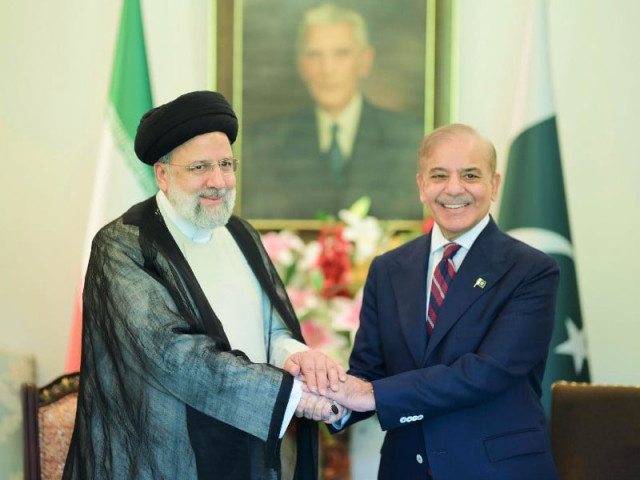The passing of Ebrahim Raisi, a pivotal figure in Iran’s recent political landscape, casts a shadow of uncertainty over the future of Pakistan-Iran relations. Raisi's tenure was marked by a complex interplay of strategic alliances and regional ambitions that now hang in the balance. His absence not only disrupts internal Iranian politics but also poses significant questions about the trajectory of its foreign relations, particularly with Pakistan.
Economically, the relationship between Pakistan and Iran is characterised by both potential and pitfalls. The Iran-Pakistan Gas Pipeline, a flagship project intended to address Pakistan’s energy shortfall, symbolises the economic interdependence the two countries have sought to cultivate. However, the political vacuum left by Raisi could jeopardise the continuity of such initiatives. Raisi was instrumental in pushing forward these economic collaborations despite numerous hurdles, including international sanctions on Iran. The new leadership in Iran might either deprioritise these projects or face greater difficulties in negotiating their continuance, which could delay or derail their progress.
Geopolitically, Raisi’s Iran had a distinctive approach to regional politics that often intersected, and at times clashed, with Pakistan's interests. Afghanistan serves as a prime example. Both Iran and Pakistan have significant stakes in Afghanistan’s stability, yet their methods and allies within the country differ. Iran’s influence in western Afghanistan and its ties with certain factions sometimes counter Pakistan's strategic objectives. Without Raisi, who balanced assertiveness with diplomatic engagement, Iran's stance towards Afghanistan might shift, leading to either greater collaboration or heightened tensions with Pakistan, depending on the new regime's priorities.
Additionally, the broader Middle Eastern dynamics, especially the Iran-Saudi Arabia rivalry, profoundly impact Pakistan-Iran relations. Historically, Pakistan has maintained a delicate balance, nurturing close ties with Saudi Arabia while engaging with Iran. Raisi managed Iran's assertive stance in the region with a level of pragmatism that allowed for occasional cooperation with Pakistan despite these regional frictions. The new Iranian leadership's approach to Saudi Arabia could either ease or increase these tensions. A more confrontational Iranian stance towards Saudi Arabia could strain Pakistan’s diplomatic tightrope walk between the two regional powers.
Security concerns also form a significant part of the bilateral equation. Both countries face the threat of terrorism and share a border prone to security challenges. Joint efforts to manage border security and combat terrorism have been crucial, yet not without friction. Raisi’s administration had made strides in addressing these issues through dialogue and coordinated efforts. The uncertainty following his death could lead to a lapse in these cooperative measures if the new leadership does not prioritise this aspect of the relationship. Increased border tensions or unilateral actions could undermine the progress made in recent years.
On the strategic front, Pakistan and Iran’s alignment or divergence on key issues will significantly depend on the ideological and practical inclinations of Iran’s new leadership. Raisi’s successor might recalibrate Iran’s foreign policy in ways that either strengthen bilateral ties through increased economic and security cooperation or heighten competition and mistrust. The continuity of dialogue, mutual respect for each other's strategic interests, and a shared vision for regional stability are essential for the health of Pakistan-Iran relations.
In summation, the death of Ebrahim Raisi injects a substantial degree of uncertainty into the future of Pakistan-Iran relations. Economic collaborations, regional geopolitical strategies, and security cooperation all stand at a crossroads. The new Iranian leadership's approach will be critical in determining whether these relations deepen or deteriorate. It is imperative for both nations to engage in proactive diplomacy and leverage their shared interests to navigate this period of transition. Building on the foundation laid during Raisi’s tenure, with an emphasis on dialogue and pragmatic cooperation, could help mitigate the uncertainties and foster a stable and mutually beneficial relationship.



COMMENTS
Comments are moderated and generally will be posted if they are on-topic and not abusive.
For more information, please see our Comments FAQ